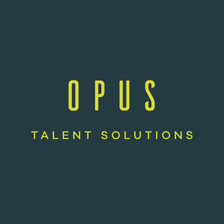Blog
The CV: Society’s Biggest Blocker?
Posted by Alex Crass – 27.09.18
I’ve worked in recruitment for many years; been there, done that, got the overflowing wardrobe of corporate shirts.
However, while the industry is constantly evolving to meet the changing needs of fast-paced clients - particularly in the tech sector - I can’t help but feel we’ve been slow to tackle a flawed system that doesn’t belong in the digital world: the humble CV.
One’s curriculum vitae (course of life) or résumé (summary - thanks Google!) certainly had its place in days gone by, but surely we can do better in these more enlightened times? Simply boling achievements down to one or two sheets of paper seems so archaic, and in no way does it represent a candidate’s true potential for the job in question.
Intrigued to see what others were doing to shake things up, I reached out to two innovative recruiters at the top of their game.
Nemo D’Qrill, CTO & Co-Founder at DotWorks
DotWorks is an AI-powered recruitment tool aiming to disrupt the job market.
It was co-founded by Nemo D’Qrill, a self-described math genius and spinach enthusiast. Here’s what he replied when I asked for his thoughts on traditional CVs:
“At DotWorks we don't use CVs at all in our initial screening of candidates. Rather we assess their suitability for a position using our testing software and AI engine."
“The first admin staff you hire you want to be a solo worker and ideator. They have to independently set up the systems and protocols. The seventh admin staff, on the other hand, you want to be a team-implementer working as a cog in the existing system."
"The ideal candidate for vastly different positions may have identical CVs. At DotWorks, our AI and testing finds the right one."
“We first screen candidates on suitability for a given vacancy, and then we asses some harder skills, e.g. problem solving and attention to detail. The top five matches will then be assessed individually through a small telephone interview and potentially information requested by our clients, such as portfolio, professional certifications, e.g. law diploma or references."
“The most suitable 1-3 people are then sent forward to interview. DotWorks AI matches the most suitable candidates to the most suitable vacancies and in a perfectly un-bias fashion."
“Our AI does not factor in age, gender, ethnicity, such things are simply not variables that can be considered in our AI's brain. We all know people who'd be amazingly suitable for a job but who do not get called to interview because they have the ‘wrong CV’, but we find the right people by assessing suitability rather than CVs.”
This way of thinking is exactly what I’ve been yearning for, and the Opus team has been bowled over by Nemo’s technology. So much so, that we’ve been collaborating on a number of projects this year, and feedback from both clients and candidates has been fantastic.
The Resourcing Manager at a top high street retailer
Another, perhaps surprising, trailblazer in modern recruitment are retail giants. I contacted a Resourcing Manager from a top retailer to get the lowdown on how they’re moving towards skills-based assessments rather than relying on CVs.
“This year, we introduced a new hiring process focused on identifying behaviours rather than simple tick-box exercises."
“Our online application system is centred around scenario-based questions to gauge an individual’s passion, kindness, empathy and listening skills - all vital in a retail environment that depends on the human touch."
“We also have a video interview stage, whereby candidates upload a self-taped clip answering an open-ended question, such as ‘What does Christmas mean to you?’. This allows us to see whether they’re well-presented, and, more importantly, that they care and are passionate."
“Naturally, we want to hire people that align with our vision and values, and we’ve found this new approach has allowed us to hire on potential rather than past experience. As long as we see genuine enthusiasm and positivity, we can teach the rest."
“We’re avoiding unconscious bias by not paying too much attention to job history. Just because someone has worked at other department stores doesn’t mean they’ll automatically be better than someone with no retail experience."
“Viewing talent in a different way has been a great leveller, and we’re confident it will boost retention as well.”
This shift toward judging people on merit rather than a potted history of past jobs is without doubt the key to long-term success for both employer and employee. Two people can have identical CVs, but can behave totally differently, so we have to look deeper than the limited detail we get with a few bullet points.
Stop Blocking Pathways
I know first-hand the pressures of placing candidates and securing deals, so believe me when I say most recruiters put forward people who look right on paper, but may not actually be the best fit.
By that I mean, if one candidate has been to a top-10 university and the other hasn’t, we all know which one is going to be referred and which CV is going in the bin.
Employers are big on saying they want to diversify their talent pool, but they’re completely blocking pathways with this shortsighted mindset.
It’s putting undue pressure on young people to go to the ‘right’ university, saddle themselves with £50k debts, and then hope that whatever course they’ve signed up to isn’t completely outdated by the time they graduate.
Instead of widening the talent pool, it’s only going to get narrower if CVs are to remain the primary calling card.
At Opus, we’re determined to challenge the status quo and ensure employers consider every stage of the talent lifecycle, so if you want to discuss a talent strategy that sticks, get in touch with our forward-thinking team today. Contact us here.
Posted by Alex Crass – 27.09.18
